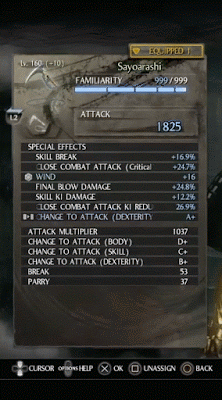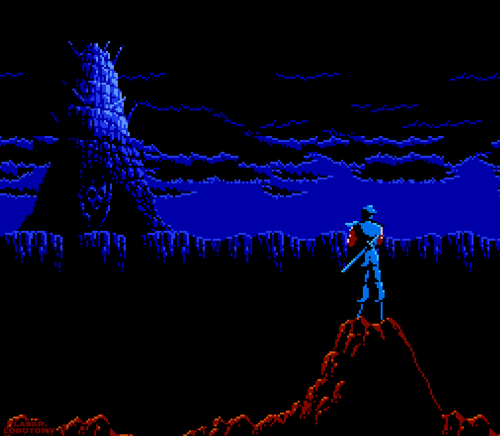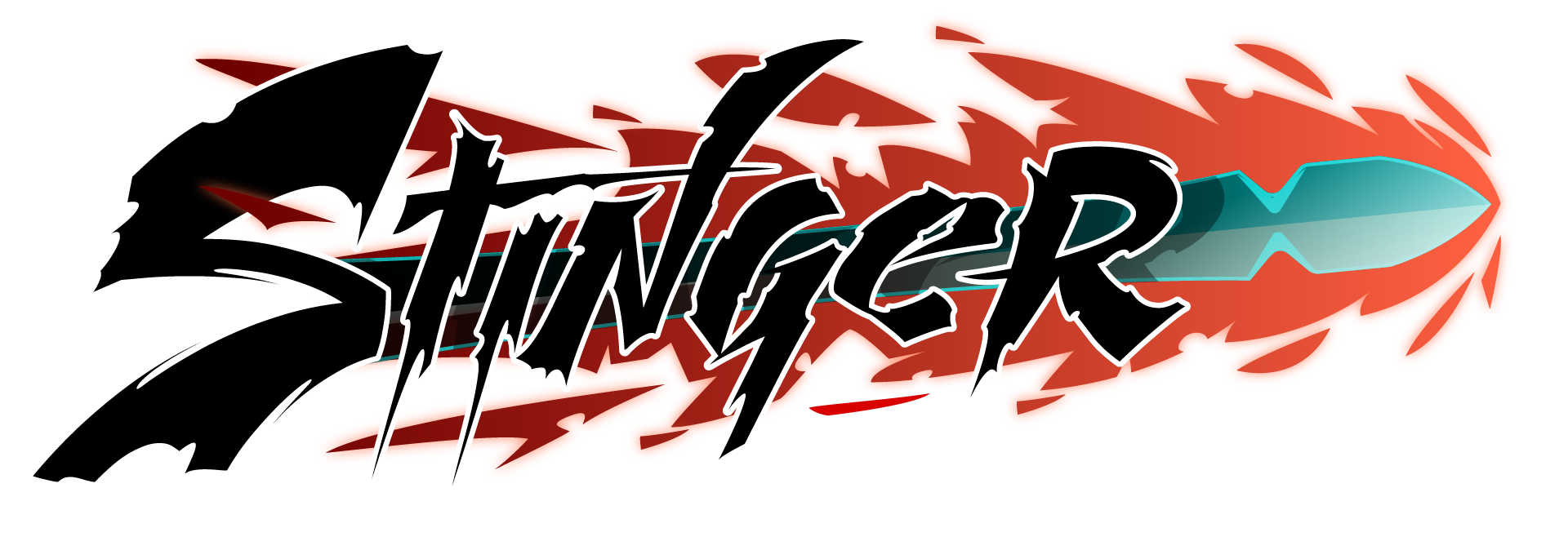In a faraway future neon lights flicker, rain ticks and the sound of action echos through your room. Tucked away in a corner you are playing Ninja Gaiden 4, only just released. Hopping from wall to wall, dashing through an enemy – cutting him in twain – the floor drenched with his blood. “+1 skill points” notes the game as a reward; you rest your ninja-like senses and contemplate what to spend it on. Perhaps increased damage output? Higher stamina so you can attack more frequently? Or maybe add some extra defense, you have been taking quite some hits these days, best be prepared. As your mind races through all these available options you slowly think back to that boss-fight that has you stumped. Your customized ninja rises to his feet and begins the mission anew. A few more runs should make you strong enough to see that boss through to the end.
The thought of a future Ninja Gaiden title including the aforementioned elements is a nightmare to some and a blessing to others. Those who felt intimidated by its difficulty might now vanquish it and those who had a desire for another action-RPG hybrid would be more than happy to jump on. Series veterans might wake up in the middle of the night sweating with fright that such a game would be made, but they’d still venture in, curious as to what lies within, but ultimately disappointed that skill has been replaced by time-investment.
Action titles have a strong root in fighting games with its emphasis of knowledge, on the fly thinking and twitch reaction. So what do statistics, attributes and other RPG-elements add to this? Hailing from the old pen and paper games like Dungeons and Dragons, stats have been used to give players a feeling of customization and control. Your barbarian wasn’t just any cut and paste warrior, he was tailored to your liking and perhaps even had some flaws to make him stand out from the rest. This concept translated well to video-games where we often want to exert a similar sense of control and personalization. We want to use Water Pokemon because we like the way they sound and handle and use a Faith-build in Demon’s Souls because we like the healing element that can save us from our mistakes – each a choice made based off of our personal preference. Stats give us the ability to express ourselves within the game in how we have our character play, instead of how we play the character.
 Statistics in games can also remove a feeling of helplessness. When stuck in Killer is Dead, one can’t really do anything but try again and hope to learn more about how the fight is structured. Titles like Ninja Gaiden already offer a bit more customization: what weapon do we use? What bracelet shall we equip? Games like Dark Souls bring this further; we can try magic instead of a hammer, or a lance instead of a sword and shield. To go even further beyond leads to Nioh, where a multitude of elements are at play: armor, weapons, set bonuses, the stats on those pieces and their combinations, the guardian spirits and a ton of other minor attributes and numbers that come together to form a unique “build”, with millions of possible variations. This sounds like the superior game, yet each added layer of choice adds layers for the designers to balance, which lead to either having an underpowered or overpowered player with both the frustrations and disappointments that come with it. A title like Killer is Dead has less player variation, but it does have more structure and balance, as it is linear in its progression and capabilities of the protagonist.
Statistics in games can also remove a feeling of helplessness. When stuck in Killer is Dead, one can’t really do anything but try again and hope to learn more about how the fight is structured. Titles like Ninja Gaiden already offer a bit more customization: what weapon do we use? What bracelet shall we equip? Games like Dark Souls bring this further; we can try magic instead of a hammer, or a lance instead of a sword and shield. To go even further beyond leads to Nioh, where a multitude of elements are at play: armor, weapons, set bonuses, the stats on those pieces and their combinations, the guardian spirits and a ton of other minor attributes and numbers that come together to form a unique “build”, with millions of possible variations. This sounds like the superior game, yet each added layer of choice adds layers for the designers to balance, which lead to either having an underpowered or overpowered player with both the frustrations and disappointments that come with it. A title like Killer is Dead has less player variation, but it does have more structure and balance, as it is linear in its progression and capabilities of the protagonist.
Let’s look deeper into what Nioh offers in terms of variation. Each build generally has a core theme, building protagonist William around one ability or setup. A Poison-build for instance stacks all sorts of buffs making poisoned enemies take more damage while the poison also does its work, an Iai-build lays an emphasis on a quick sheathed strike from the katana, while a magic scaling dual katana build has a bigger emphasis on spells bringing the pain and weakening an enemy’s defenses so that they take more damage. Then there are kunai-builds, based around killing an enemy afar while buffing yourself, and much, much more. While these options all offer variation in their execution, they are all the same in at the core: they focus on killing an enemy, the main differences between them being in how potent they are, what tools they use and their balance between attack and defense.
“Many players cannot help approaching a game as an optimization puzzle.
Given the opportunity, players will optimize the fun out of a game”– Soren Johnson –
(current designer and programmer at Mohawk Games, also having worked on Civilization)

This urge to optimize, to kill as efficiently as possible, doesn’t work well with all roads going down the same path. Metal Gear Rising: Revengeance suffered from a similar mindset problem offering players a choice of swords, each with the same move-set but with minor variations in the stats and effects. One blade would have a percentile chance to stun a foe, while another could break armor faster. Yet only the Murasama Blade saw use for it had a high attack speed and the highest damage per hit. Stunning a foe is nice; killing him faster is nicer, more optimal. Now let’s compare Nioh to a game like P.N.03. This third-person action title allows you to switch outfits, each with their own statistics and special moves. If a player is stuck they can try another suit, maybe one that grants temporary invincibility will help instead of one that has a high damaging super-move; for this fight, that might just be what one needs. This is a decision made on play-style and the problem presented before you. If the player is stuck in Nioh one can learn the boss in and out while dealing minor damage, or increase the numbers and return to beat him to death in seconds. Turning the stat “close combat damage +14%” into “close combat damage +15%” slowly becomes the improvement, not nailing the timing of that one punish or finding that rhythm of play that suits you just right. In the end it will result in a game that feels less like you being in control of your choice but more about being offered multiple renditions of the same formula. It’s a factor of quality versus quantity; in P.N.03 each minor choice matters and has a big impact, but the choices are offered by the designer while in Nioh all roads lead down a similar path, but they are of your own making. Builds should determine playstyle, not determine the difference between a five minute boss fight or killing him in one blow. The RPG elements have, in the mix-mash of adding content to a title, lost sight of what they were meant to do: offer variety and personalization in play-style.
 By allowing the balance to shift from action to statistics players will be less inclined to learn how the game plays, memorize enemy patterns or find a style of play that fits them – instead they’ll fall back to the numbers and seek to increase them. This emphasis on RPG elements results in players, so focused on the numbers, failing to see what’s in front of them. And this is where the moment to moment gameplay will differ greatly per player as everyone can beat the game eventually. No matter how unskilled a player is or how unwilling to learn, if he gets the numbers high enough he’ll eventually crack the wall down and win, something that’s not there in games that rely purely on player skill. This is a thin line to balance on for designers, go too far to the left and you’ve got a game with excellent customization and play styles but one that maybe only half of the fan-base can beat – on the other side is a game filled to the brim with numbers that is beaten by all. Both are games that have a distinct target audience but they are far apart with different tastes, wants and needs from a title. That which pleases the side of the action gaming community will not sit well with fans of the RPG spectrum and vice versa.
By allowing the balance to shift from action to statistics players will be less inclined to learn how the game plays, memorize enemy patterns or find a style of play that fits them – instead they’ll fall back to the numbers and seek to increase them. This emphasis on RPG elements results in players, so focused on the numbers, failing to see what’s in front of them. And this is where the moment to moment gameplay will differ greatly per player as everyone can beat the game eventually. No matter how unskilled a player is or how unwilling to learn, if he gets the numbers high enough he’ll eventually crack the wall down and win, something that’s not there in games that rely purely on player skill. This is a thin line to balance on for designers, go too far to the left and you’ve got a game with excellent customization and play styles but one that maybe only half of the fan-base can beat – on the other side is a game filled to the brim with numbers that is beaten by all. Both are games that have a distinct target audience but they are far apart with different tastes, wants and needs from a title. That which pleases the side of the action gaming community will not sit well with fans of the RPG spectrum and vice versa.
This can impact sales and marketing to a degree as well. Let’s look at Ninja Gaiden 2 and Nioh, both from developer Team Ninja. One is a title that prides itself on skillful combat, while the other has RPG elements to help a less skilled player out. Of the around 1.100.000 Ninja Gaiden 2 players that bought it only ~21.000 beat the game, based on achievements. Of these 21.000 only 1.200 (about 0,1%) beat the game on Master Ninja difficulty, the highest difficulty setting on offer. With Nioh around 1.300.000 players bought the game and, based on trophy-data, 64.000 made it until the end with only around 1.600 beating the whole game on Way of the Demon – which isn’t even the highest available. So while Nioh is more accessible, the crowd that stays until the end remains the same core group.
But what if Nioh didn’t have stats at all, how would it offer variation in gameplay? There are already some small examples present in the title itself, namely the Tonfa Gun ability. An attribute that, once gained, gives the weapon extra range in the form of a gunshot fired from its sticks. This ability changes the way the weapon is used giving it better ranged options and higher damage potential. The combat may evolve, but so too need the mechanics evolve with them lest the whole suffer for it. Outside of this example, a stat-less Nioh might contain a tonfa with a grappling hook to deal with ranged enemies better, while another shoots pellets of smoke or spikes to slow enemies down. One player might wish to play with a katana with an emphasis on slow sheathed moves, or one that focuses on hilt-based combat for more speed but less range; while another player wants to focus on an axe setup that is strong against groups, but slow against single targets. Each setup offering a distinct play style that allows the player to express himself in the combat. The original Alpha and Beta versions of the game opted to not have damage increasing statistics, but have them be minor upgrades in terms of Ki spent or how strong your block was.
So in the end, should Ninja Gaiden 4 have stats? Stats open up a game to a broader audience, while still allowing the challenge that series veterans seek. But in the end, a game that tries both, doesn’t succeed in either. Offering combat that can fall back on other elements is a combat that falters, and the hard work players put into their numbers and expression are lost when they are all the same and lead to frustration in gameplay, where they are held back by playing another genre present in their own. Experimentation is certainly possible, and should be motivated! But perhaps it is time for games to look for one core design, with small additions and variations, instead of a game that tries to do everything in a big way.
So for you, dear reader, if Ninja Gaiden 4 or Nioh 2 were to be announced; what would you prefer? For the RPG-elements to be an addition to your own skill? Or for your own skill to be an addition to your RPG stats?

斬 postscript notes 斬
- This topic was insanely hard to write, ending up nearly 4 weeks in production.
- To gain inspiration certain discussions were started both on the official Stinger Magazine forums, and the Reddit page of Nioh.
- Originally the game The Sims was going to be mentioned as well, in the way it implements stats in its core mechanics, without it taking over. It ended up not fitting with the core message of the article.
- The facts on the completion percentages of Nioh and Ninja Gaiden 2 took me by surprise, originally meant to build onto the point that a more casual and accessible game sells better, only to completely throw that point out the window. Research is funny that way.
- Shoutouts to Reddit user “DsDoan” for the quote “builds should determine playstyle; they should not determine the difference between a 5 minute boss fight, and one-shotting a boss”, it was so solid I had to include it in this article.
- https://www.designer-notes.com/
- https://www.reddit.com/r/Nioh/comments/750lj1/for_nioh_2_what_would_you_prefer_for_the_rpg/
- http://paizo.com/pathfinderRPG/prd/coreRulebook/gettingStarted.html
- http://www.faterpg.com/wp-content/uploads/2013/07/fate1e.pdf
- https://www.rpg.net/news+reviews/columns/roughquests08jul05.html
- https://www.giantbomb.com/attributes/3015-1681/
- http://www.vgchartz.com/game/7709/ninja-gaiden-ii/
- https://www.vg247.com/2017/03/30/nioh-is-the-most-successful-game-koei-tecmo-has-ever-published-in-the-west/


Yeh yeh this is all fine and dandy and I totally agree, keep dos stats out of mah Ninjah Gaydens.
But shouldn't the real question be: Should NG4 have the innovative Majima Anywhere System{Patent}?
hahaha, Joe Hayabusa everywhereeeee
I wouldn't want stats in a NG4. I think TN did the best they could with Nioh, but my opinion of the game began to sour after Way of the Wise. I had already respecced 3 times up to that point and had to respec again to keep up with the inflated difficulty, plus farming Marobashi for gear which was a nightmare at first.
Definitely keep stats away from skill based action games. Stats and skill conflict too much, they clash enough so that they cannot work together. Even in Dark Souls the game is beatable at SL1, tough but quite manageable. Try doing that in Nioh, after Way of the Strong it would become absolutely demoralizing :/
I agree wholeheartily. The stats really get tired, especially once they become an interagal part of it. They just clash, it makes it into a mess. I actually did a Level 1, White Weapon Only, No Gear, No Items run of Nioh, and even on Samurai it was tedious near the end. For fun I started that run on Way of the Nioh and it took minutes to kill even the most basic enemy.
One thing that helps in games like these is having a combat option that is always the same in terms of power. Resident Evil has the knife and its melee, Evil Within its matches, God of War its grabs and Dark Souls its pyromancy and ringouts – there are ways to fight around the stats if they were there. Nioh lacked this, badly.